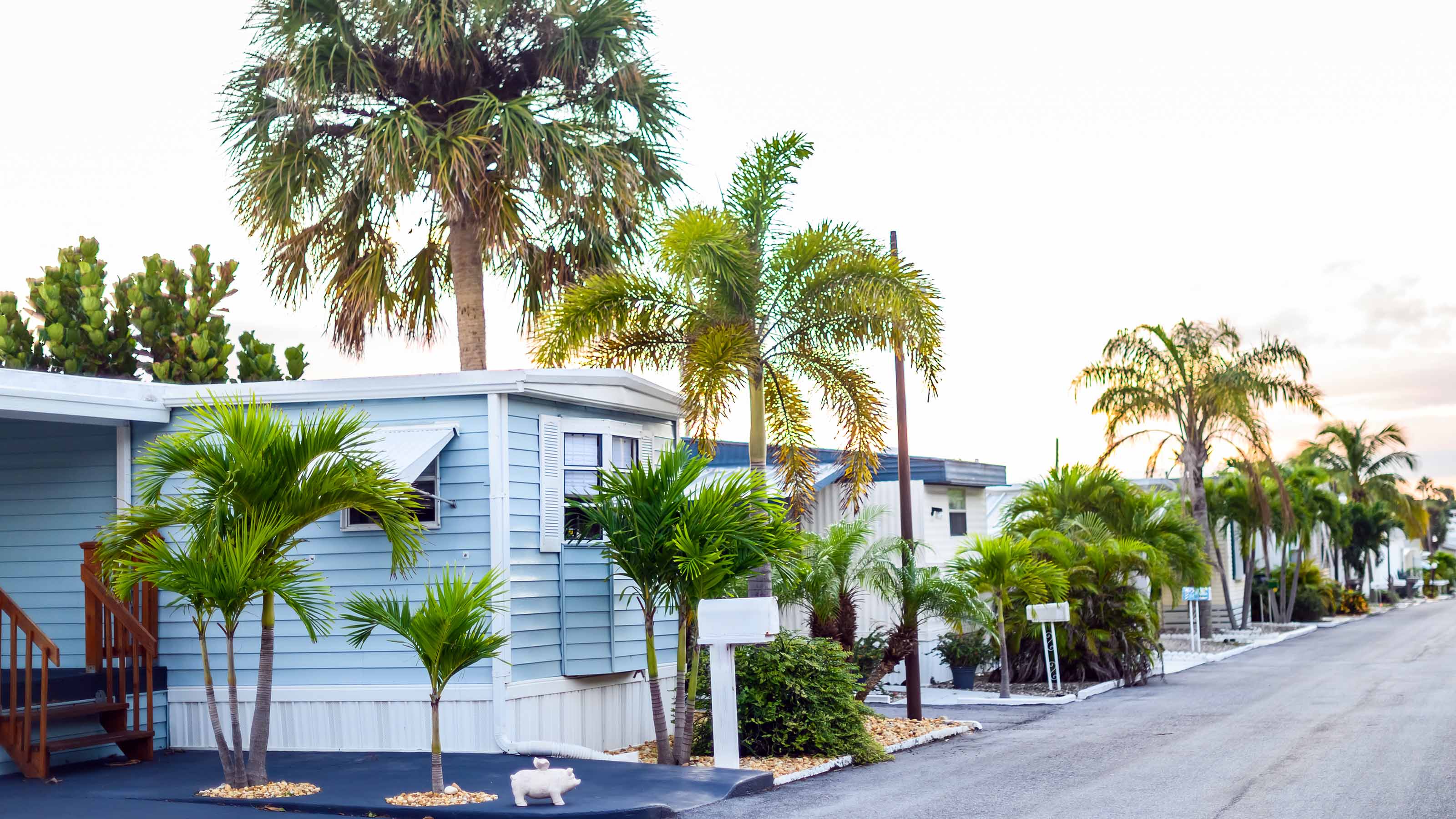12 REITs Flaunting Fast-Growing Dividends
REIT dividends allow investors to boost their income stream, making the yield-friendly sector all the more attractive – especially during periods of high inflation.


Profit and prosper with the best of Kiplinger's advice on investing, taxes, retirement, personal finance and much more. Delivered daily. Enter your email in the box and click Sign Me Up.
You are now subscribed
Your newsletter sign-up was successful
Want to add more newsletters?

Delivered daily
Kiplinger Today
Profit and prosper with the best of Kiplinger's advice on investing, taxes, retirement, personal finance and much more delivered daily. Smart money moves start here.

Sent five days a week
Kiplinger A Step Ahead
Get practical help to make better financial decisions in your everyday life, from spending to savings on top deals.

Delivered daily
Kiplinger Closing Bell
Get today's biggest financial and investing headlines delivered to your inbox every day the U.S. stock market is open.

Sent twice a week
Kiplinger Adviser Intel
Financial pros across the country share best practices and fresh tactics to preserve and grow your wealth.

Delivered weekly
Kiplinger Tax Tips
Trim your federal and state tax bills with practical tax-planning and tax-cutting strategies.

Sent twice a week
Kiplinger Retirement Tips
Your twice-a-week guide to planning and enjoying a financially secure and richly rewarding retirement

Sent bimonthly.
Kiplinger Adviser Angle
Insights for advisers, wealth managers and other financial professionals.

Sent twice a week
Kiplinger Investing Weekly
Your twice-a-week roundup of promising stocks, funds, companies and industries you should consider, ones you should avoid, and why.

Sent weekly for six weeks
Kiplinger Invest for Retirement
Your step-by-step six-part series on how to invest for retirement, from devising a successful strategy to exactly which investments to choose.
Real estate investment trusts (REITs) typically come to mind when considering the most yield-friendly asset class. According to NAREIT data, REIT dividends averaged approximately 3.4% in August, or more than twice the yield of the S&P 500.
And it's these generous yields that make REIT dividends especially attractive to income investors – especially during times of high inflation. While recent releases of the consumer price index (CPI) showed moderating inflation, it will take awhile to bring prices down – creating challenges for those living on a fixed income, who have few options available for offsetting steadily rising costs.
But one option they have is to target REIT dividends. In addition to generous yields, REITs have a built-in cushion to hedge against inflation and limit downside risk. REITs tend to have embedded escalators in their leases that cause rents to rise annually. And many firms will link rent increases with the CPI, making REITs ideal investments during times of higher inflation.
While investors will often seek out the best REITs to buy based on their rich yields, they may often overlook a firm's ability to deliver exceptional dividend growth. BCA Research earlier this year forecast REIT dividends rising by 10%, on average, in 2022, versus 7.1% for the broader S&P 500.
Here are 12 REITs that have the fastest-growing dividends. All of the companies featured here have been reliably raising payouts in recent years and boast five-year average annual dividend growth of at least 8.8%. What's more, these REIT dividends are well-positioned for continued growth thanks to the companies' solid long-term fundamentals.
Data is as of Sept. 7. Dividend yields are calculated by annualizing the most recent payout and dividing by the share price. Stocks are listed in reverse order of five-year average annual dividend growth.

CareTrust REIT
- Market value: $2.1 billion
- Five-year average annual dividend growth: 8.8%
- Dividend yield: 5.2%
CareTrust REIT (CTRE, $21.27) acquires and leases senior housing and healthcare properties to many of the country's leading regional and national healthcare chain operators. The company's current portfolio consists of 198 properties totaling 21,537 beds distributed across 21 states, with major concentrations in Texas (23%) and California (28%). These assets, which consist primarily of skilled nursing facilities with some multi-service campuses and senior housing as well, are leased to 18 different healthcare chain operators.
Demographic trends support the REIT's growth expectations. The demand for skilled nursing facilities is forecast to increase steadily over the next decade due to an aging U.S. population.
CareTrust has 32 facilities representing roughly 10% of contracted rents that it plans to reposition or sell as part of a 2022 plan to optimize its portfolio. Three underperforming senior housing facilities are being converted into residential addiction recovery centers, marking the company's initial foray into the lucrative behavioral health facility market.
CTRE also has an active acquisition pipeline, and so far this year has acquired skilled nursing facilities in Texas and Illinois, as well as an 18-property portfolio in the Mid-Atlantic. In each case, the new facilities have already been added to existing master leases with current CareTrust tenants.
The REIT collected 94% of contracted rents during the June quarter and experienced rising occupancy rates in both its skilled nursing and senior housing segments. FFO per share (funds from operations, a key REIT metric) was flat year-over-year at 36 cents during the June quarter, but amply covered CTRE's 27.5 cents per-share quarterly dividend.
CareTrust has a great track record for REIT dividends, averaging nearly 9% annual increases over the past five years. CTRE even increased dividends early on in the pandemic when many other healthcare REITs were cutting payments. A solid balance sheet shows no debt maturities before 2024 and a conservative ratio of net debt at roughly 4.3 times EBITDA (earnings before interest, taxes, depreciation and amortization).
"Management has started to execute on the portfolio repositioning that was announced in February," says Stifel analyst Stephen Manaker. "We continue to believe this approach makes sense given the REIT can easily sell non-core properties into a very liquid sales market and recycle the capital." The analyst has a Buy rating on CTRE due to the real estate stock's "attractive" valuation. Shares are currently trading at less than 14 times forward adjusted FFO, which is an 18% discount to the REIT sector.

Crown Castle
- Market value: $75.2 billion
- Five-year average annual dividend growth: 9.0%
- Dividend yield: 3.4%
Crown Castle (CCI, $173.68) is the country's largest provider of shared communications infrastructure. The REIT owns and/or operates a network of more than 40,000 cell towers, approximately 115,000 small cell nodes (used to bolster capacity in areas where data demand is greatest) and 85,000 route miles of fiber. The REIT has a presence in every major U.S. market.
At present, Crown Castle is enjoying long-term tailwinds fueled by steady growth in mobile data demand as well as rent escalators embedded in its long-term contracts. Current contracts have a weighted average of seven years remaining on lease payments totaling $42 billion. Wireless carriers like the REIT's mix of towers, small cell nodes and fiber, which enables coverage and capacity expansion to support denser networks and relieves congestion.
CCI's cell tower segment generated 6% organic growth during the first six months of 2022 as a result of clients investing in the first phase of 5G buildouts. The REIT plans to double its rate of small cell deployments to approximately 10,000 next year.
Site rental revenues increased 10% during the June quarter, adjusted EBITDA jumped 13% and adjusted FFO per share improved 5%. These solid results caused Crown Castle to hike its full-year 2022 outlook and the REIT is currently guiding for 14% adjusted EBITDA gains and 6% adjusted FFO per share growth.
Investors looking for consistent REIT dividends will find a winner with CCI. Over the past five years, Crown Castle has grown its dividend 9% annually, on average. The latest dividend increase was 10.5% last October. The REIT is committed to delivering at least 7% to 8% dividend growth per year and room to hike its payment is enabled by a 77% payout from FFO. Dividend safety is also enhanced by the REIT's investment-grade balance sheet.
Jefferies analyst Jonathon Peterson thinks that data center REITs like Crown Castle are better positioned than others to offset inflation due to their short-term leases and ability to pass through rising costs via rent increases. He upgraded CCI shares to Buy in June.

Equinix
- Market value: $58.9 billion
- Five-year average annual dividend growth: 9.5%
- Dividend yield: 1.9%
Equinix (EQIX, $647.20) is a global digital REIT that operates 248 data centers across 31 countries and serves over 10,000 customers. Following an intense round of buyouts by equity firms last year, Equinix and rival Digital Realty Trust (DLR) are the market's only remaining pure play digital REITs.
EQIX serves over 3,000 cloud and IT service provider customers, including leading hyperscale cloud providers like Alphabet (GOOGL), Microsoft (MSFT), Zoom Video Communications (ZM) and Oracle (ORCL). Approximately 95% of the REIT's revenues are recurring and 90% of its bookings are from existing customers, providing a highly predictable income stream. The company has been adding approximately 200-300 new customers per quarter and has held its churn rate to around 2%.
The company continues to expand its global footprint and recently made its first entry into the African market via the $320-million acquisition of MainOne. This follows last quarter's $750-million purchase of four Entel data centers in South America. The REIT has 49 development projects underway worldwide, including additional data centers opening in Milan, Frankfort, London, Mexico City, Sydney and Tokyo.
Equinix's growth initiatives are supported by a BBB+ rated balance sheet showing $5.8 billion of available liquidity. And so far, so good. The REIT has recorded 78 consecutive quarters of revenue growth, which is the longest track record of any S&P 500 company.
The company's track record for dividend growth is building. The REIT has delivered six consecutive years of dividend hikees, including nearly 10% annual increases, on average, over five years. Plus, its payout from FFO is in the modest 60% range.
Oppenheimer analyst Timothy Horan upgraded EQIX shares to Outperform (Buy) in July, calling this REIT the primary on-ramp for the cloud. He thinks Equinix possesses the critical infrastructure and competitive moats necessary for recession resistance and maximum pricing power. Investors seeking out REIT dividends will definitely want to keep EQIX on their radar.

CubeSmart
- Market value: $10.7 billion
- Five-year average annual dividend growth: 9.8%
- Dividend yield: 3.6%
CubeSmart (CUBE, $47.35) is among the top three self- storage REITs in the U.S., owning and/or managing nearly 1,300 properties. This REIT expanded its portfolio in high-growth Western markets (Southern California, Phoenix, Houston and Las Vegas) last December via the $1.7-billion acquisition of Storage West, which owned 59 facilities.
CUBE put in a strong showing in the June quarter, boasting a same-store occupancy rate of 95% and generating 19% same-store net operating income gains. The REIT's 12.7% rental revenue growth reflects acquisitions, new development and new stores added to the company's profitable third-party management platform. What's more, a 24% year-over-year jump in adjusted FFO per share prompted CubeSmart to raise its full-year FFO per share outlook.
Income investors eyeing REIT dividends will want to give CubeSmart a closer look. The company has an 11-year track record of dividend growth, including 10% average annual hikes over five years. And late last year, CUBE rewarded investors with a 26% dividend hike. Payout from FFO appears sustainable at 70% and the REIT boasts ample liquidity and an investment-grade balance sheet.
In May, Raymond James analyst Jonathon Hughes lifted his rating on CUBE to Strong Buy, due to an attractive risk-reward setup, as well as the recession-resistant nature of its business. And in June, BofA Securities analyst Jeffrey Spector upgraded CUBE to Buy, citing improving economic data for metropolitan New York, where CubeSmart is the storage space market leader.

Prologis
- Market value: $93.8 billion
- Five-year average annual dividend growth: 10.5%
- Dividend yield: 2.5%
Logistics REIT Prologis (PLD, $126.63) is merging with rival Duke Realty (DRE) in a $26-billion all-stock transaction. DRE will bring Prologis a portfolio of roughly 5,300 properties comprising 153 million square feet of leasing space, while also building out PLD's presence in a variety of key markets, including Southern California, Dallas and Atlanta. Other benefits of the merger include anticipated annual synergies of $375 million to $400 million and an anticipated boost to annual FFO per share of 20 cents to 25 cents.
At present, Prologis owns 4,732 facilities and has investments, joint ventures and development projects expected to total approximately 1.0 billion square feet of leasing space across 19 countries. Prologis is already the world's largest logistics REIT and serves over 5,800 tenants including e-commerce giant Amazon.com (AMZN) and shipping stalwarts UPS (UPS) and FedEx (FDX).
Demand in the U.S. warehouse space is strong, and, at the current rate of leasing, all available space is anticipated to dry up within the next 16 months. The supply-demand imbalance is reflected in Prologis' high 97.4% occupancy rate and whopping 45.6% rent growth from new and renewed leases during the June quarter.
Roughly 16% of the REIT's leases expire in the second half of 2022, which should fuel additional rent gains this year. Also supporting PLD's future growth is $1.6 billion of active development projects underway and 10,700 acres of land available to the company for future development.
Prologis also generates recurring revenues from managed third-party facilities, and these have been rising at a 23% average annual rate since 2018. They currently comprise approximately 12% of revenues.
Over the last five years, Prologis has generated average annual growth of 11% core FFO per share and 12% in dividends. Core FFO per share rose 10% in the June quarter, and Prologis raised its outlook for full-year FFO to a range of $5.14 per share to $5.18 per share, up 24% at the midpoint of guidance.
PLD is one of the most reliable names for REIT dividends, too. Payments have risen eight years in a row and payout is modest at 65% of FFO. The latest dividend increase was 25.6% in February.
A terrific balance sheet supports the company's ability to acquire and/or develop properties. Prologis has $6.8 billion of available liquidity, credit ratings of A3 and A from Moody's and Standard & Poor's, respectively, and low leverage showing debt at just 3.9 times adjusted EBITDA.
Prologis was one of only two real estate companies touted by Goldman Sachs strategist David Kostin in June as among the most stable stocks in the S&P 500. He anticipates PLD will outperform if the direction of the U.S. economy remains uncertain.

Equity Lifestyle Properties
- Market value: $14.2 billion
- Five-year average annual dividend growth: 11.1%
- Dividend yield: 2.3%
Equity Lifestyle Properties (ELS, $72.80) is a manufactured housing REIT that also owns recreational vehicle (RV) resorts, campgrounds and marinas. The REIT's portfolio includes developed sites under long-term leases to owners of manufactured housing, RVs and recreational boats. At present, Equity Lifestyle owns 446 properties spread across 35 U.S. states and Canada consisting of nearly 170,000 manufactured housing sites. These properties are located in popular retirement and vacation destinations.
Strong demand for manufactured housing sites, fueled by retiring baby boomers, has enabled ELS to maintain 98%+ occupancy rates and 4.2% annual core rent growth over five years.
This REIT's ability to thrive across all parts of a real estate cycle is evidenced by its 15-year track record that shows 9% annual FFO per share gains and 22% yearly dividend growth through 2021.
Annual dividend growth over five years has ranged around 11%, while payout from adjusted FFO is relatively modest at 68%.
This REIT's dividends isn't the only thing seeing impressive growth. Equity Lifestyle's normalized FFO per share rose 9.6% during the first six months of 2022, and the company is guiding for normalized FFO per share ranging from $2.68-$2.78 this year, up 8% at the midpoint.
Bulls like ELS for its strong business model, high dividend growth and healthy balance sheet. The stock boasts Buy or Strong Buy ratings by seven of the 12 Wall Street analysts following it.

NexPoint Residential Trust
- Market value: $2.8 billion
- Five-year average annual dividend growth: 11.3%
- Dividend yield: 2.9%
NexPoint Residential Trust (NXRT, $53.32) owns and acquires multifamily properties primarily in the Sunbelt states. At present, the REIT owns 41 apartment communities together comprising 15,387 units that are spread across core markets, including Las Vegas, Atlanta, Nashville, Orlando and Raleigh-Durham.
The migration of working-class Americans to the Sunbelt as a means of fleeing higher rents is supercharging demand for apartments in these key areas. In addition, many large corporations are relocating their headquarters to tax-friendly Sunbelt states, bringing thousands of workers with them.
As a result of rising demand, NexPoint is able to capture big increases in rent ranging from 13.8% in Nashville to 17.5% in Phoenix, while maintaining 94% to 95% occupancy rates across all of its markets. Overall, portfolio occupancy during the June quarter was 94.2%
In addition to macroeconomic factors driving rental income gains, NXRT has redevelopment projects underway impacting approximately 4,900 apartment units. The return on investment from these projects, which include full interior upgrades and smart home technology, is expected to range from 20% to 63%.
The REIT's core FFO rose 41% during the June quarter and 39.8% during the first six months of 2022. At the midpoint of guidance, NexPoint is targeting 15.8% same-store net operating income growth, $225 million of acquisitions and 24% growth in FFO per share for all of 2022.
NXRT's preference for floating-rate versus fixed-rate debt has spooked investors already worried about rising interest rates. The real estate stock is down more than 37% for the year-to-date to trade at 18 times forward FFO. This is an unusually low valuation for this fast-growing Sunbelt REIT.
However, the selloff allows investors seeking out REIT dividends to get one of the best names for growth at a discount. NexPoint has increased dividends six years in a row, averaging an 11% annual hike over the past five years. The last dividend increase was 11.4% in November. Modest payout at only 54% of FFO leaves plenty of room for another double-digit dividend hike down the road.
Credit Suisse named NexPoint one of its top five REIT picks in June. NXRT shares enjoy Buy or Strong Buy ratings from five of the company's eight Wall Street analysts.

Extra Space Storage
- Market value: $28.8 billion
- Five-year average annual dividend growth: 12.0%
- Dividend yield: 3.0%
Extra Space Storage (EXR, $205.12) is a leading self-storage REIT that manages a portfolio of 2,130 properties and 164 million square feet of leasing space across 41 U.S. states. It is the second largest self-storage REIT in the U.S., behind only industry leader Public Storage (PSA), which is twice as large. In addition to 995 wholly-owned facilities, Extra Space Storage has 288 sites owned through joint ventures and 847 properties it manages for third parties.
The U.S. self-storage sector is currently benefiting from robust occupancy levels, significant pricing power and diminishing new supply. These trends are reflected in Extra Space Storage's rising occupancy rate and 22% same-store revenue growth in the first half of 2022.
Over that same six-month time period, EXR acquired 41 new sites, added 77 stores to its third-party management platform, and boosted core FFO per share by 31.8%. The company is guiding for 18.5%-21.5% same-store net operating income growth this year and core FFO per share of $8.30-$8.50, up 21.5% at the midpoint of guidance.
Compared to other self-storage REITs, Extra Space Storage is a best-in-class operator. This is based on its five-year record of 6.1% annual revenue growth and 7.5% yearly net operating income gains. Plus, since 2011, EXR has seen sector-leading core FFO per-share growth of 600%.
Investors seeking out REIT dividends will definitely want to give EXR a closer look. The company has increased dividends 11 years in a row, averaging 12% annual gains over five years. EXR most recently hiked its dividend in February, by 20%. The dividend is likely secure, with payout at a solid 70% of FFO. What's more, the REIT boasts an improving balance sheet, with net debt that has recently declined to only 4.5 times EBITDA.
EXR stock had a blazing run in 2021, with the share price nearly doubling. However, the REIT has stalled a bit in 2022, down roughly 10% for the year-to-date.
Still, plenty of analysts are upbeat toward the REIT. Extra Space Storage has earned Buy or Strong Buy ratings from half of the 14 analysts covering the stock.

Terreno Realty
- Market value: $4.6 billion
- Five-year average annual dividend growth: 12.7%
- Dividend yield: 2.6%
Terreno Realty (TRNO, $61.08) is an industrial REIT that owns 249 distribution facilities encompassing 15.1 million square feet of space. TRNO operates in six major coastal U.S. markets, including Seattle, Washington D.C. and Miami. These markets are important because of their population density, strategic position on key shipping routes and physical/regulatory barriers to new supply.
This REIT's same-store portfolio occupancy has consistently exceeded 98%. It's likely to remain high, given that 35% of its portfolio is in markets where industrial supply is shrinking and 47% is in markets lacking net new supply. Scarce supply also provides Terreno with exceptional rent growth opportunities as expiring leases are renewed.
Indicative of its exceptional bargaining power, the REIT increased cash rents on new and renewed leases by nearly 43% during the first six months of 2022. Terreno enjoyed 11.4% same-store net operating income growth during the first half of this year and increased FFO per share by 14% during the June quarter.
Fueling this growth is TRNO's expansion strategy, which focuses on selective infilling of its six coastal markets via acquisitions, redevelopment and leasing. In the first half of 2022, the REIT closed $316 million of acquisitions, with another $51.3 million of properties under contract.
The company's fundamental strength is helping to reward investors seeking out REIT dividends. Terreno issued a nearly 18% dividend hike in August and has averaged double-digit annual dividend growth over the last five and 10-year periods. And it has done this while maintaining payout from FFO in the 75% range.
TRNO is expensive, trading at a multiple of 31 times forward FFO. However, bulls think this rich valuation is warranted given the REIT's unique footprint, high barriers to entry and robust dividend growth. TRNO shares are ranked Buy or Strong Buy by six of 11 covering Wall Street analysts.

Rexford Industrial Realty
- Market value: $11.2 billion
- Five-year average annual dividend growth: 13.5%
- Dividend yield: 2.0%
Rexford Industrial Realty (REXR, $63.44) focuses exclusively on industrial properties in Southern California. The REIT owns 335 properties encompassing 40.8 million square feet of leasing space and roughly 1,600 tenants.
The company's Southern California market is valued at $37.2 billion, or nearly five times the value of the next five largest U.S. markets combined. This area is characterized by limited new supply, rising demand and rent growth that has consistently exceeded national averages.
Over the past five years, Rexford's Southern California footprint has helped the REIT achieve average annual gains of 31% in net operating income, 15% in FFO per share and 18% in dividend hikes.
REXR extended its record of high growth during this year's June quarter, delivering a 99.1% occupancy rate, 25.6% core FFO per share gains and adding 18 new properties to the portfolio[. Rexford Industrial also raised its full-year FFO per-share guidance, currently targeting 17% growth at the midpoint.
The REIT plans to grow by infilling its existing markets and currently has nearly 240 million square feet of space and 2,000 properties in its acquisition pipeline. Rexford also says it has the ability to create another $1.0 billion of value through 2024 via its repositioning and redevelopment pipeline.
An investment-grade balance sheet showing roughly $1.5 billion of liquidity gives this REIT plenty of dry powder for acquisitions and development. At the same time, Rexford's rising dividend remains well-covered, with payout ranging around just 57% of FFO. The REIT's latest dividend increase was a 31.3% hike in February. All of this bodes well for investors looking for the best REIT dividends.
While REXR is trading at a somewhat expensive 33 times forward FFO, most analysts think its strong growth prospects warrant a richer valuation. The stock enjoys Buy or Strong Buy ratings eight of its nine Wall Street analysts.

Arbor Realty Trust
- Market value: $2.5 billion
- Five-year average annual dividend growth: 16.8%
- Dividend yield: 10.7%
Mortgage lender Arbor Realty Trust (ABR, $14.80) makes loans on a wide variety of property types, including multifamily, office, industrial and retail. The REIT's portfolio consists mainly of small balance bridge loans, averaging $7 million in size.
Bridge loans are loans made to transition or upgrade a property. Over 90% of the REIT's bridge loans are tied to multifamily properties, which are considered a less risky property type. The REIT's portfolio is also well-diversified geographically, with the largest concentrations being in Texas (20%), Florida (14%) and Georgia (8%). These Southern states are exhibiting healthy economic growth and net migration that is driving high demand for housing.
In addition to lending, Arbor Realty Trust manages a multibillion-dollar loan servicing portfolio that provides healthy recurring revenues. The REIT is a leading Fannie Mae lender and Freddie Mac loan seller/servicer. ABR's $27 billion servicing portfolio generates $121 million of income annually and the portfolio has nine years of remaining life.
Over the past five years, the REIT has increased loan originations and the value of its servicing portfolio at compound annual growth rates of 11% and 15%, respectively.
And this strength was seen in the June quarter, too, with Arbor Realty's loan portfolio growing 6% over the three-month period to exceed $15 billion. The company also originated $1.27 billion of loans and saw its distributable earnings rise 16% to 52 cents per share.
What's more, shareholders were rewarded with the company's ninth consecutive quarterly dividend hike. This is just more of the same for one of the best names for REIT dividends, with payouts growing 30% over nine quarters and 17%, on average, annually over five years. Plus, the dividend appears safe with payout at just 75% of distributable earnings, and its rich dividend yield is three times the average peer levels.
Like other mortgage REITs, Arbor Realty is highly leveraged, but its focus on smaller loans and multifamily properties helps mitigate risk. Additional operations in loan originations and servicing also enhance the stability of its cash flows. Plus, ABR showed its resilience during the pandemic when, unlike other mortgage REITs, it posted record profits in 2019, 2020 and 2021.
Recession fears have caused shares of mortgage REITs to decline in 2022, with ABR down about 20% for the year-to-date. However, Arbor Realty now appears bargain-priced, trading at a low 7.7 times forward earnings – a 21.5% discount to industry peers.

American Tower
- Market value: $120.8 billion
- Five-year average annual dividend growth: 18.3%
- Dividend yield: 2.3%
Income investors focused on REIT dividends should find much to admire with American Tower (AMT, $259.50). This leading cell tower REIT has increased its dividend at an average annual rate of roughly 20% since 2012. Dividend growth over the last 12 months has been 14%.
Steadily rising mobile data traffic is creating demand for more cell towers worldwide. And American Tower, with a global portfolio made up of approximately 220,000 communication sites across the U.S., Europe, India and Latin America, has steadily increased profits by adding new tenants to its existing cell towers. The REIT's return on investment rises from 3% at one tenant per cell tower to 13% with two tenants and 24% with three tenants.
American Tower supplements organic growth from lease-ups with acquisitions. Last November, the REIT announced the roughly $10-billion acquisition of data center REIT CoreSite. This transaction establishes American Tower as the market leader across multiple classes of communications real estate and a key player in 5G deployment. The CoreSite purchase is also significantly accretive to long-term FFO.
And in July, AMT announced a partnership with investment firm Stonepeak in its U.S. data center business, which consists of 27 data centers in 10 domestic markets and more than 450 networks. Stonepeak invested $2.5 billion to gain a 29% stake in the U.S. data center business and will be a strategic financing partner going forward.
These deals will certainly help boost growth for AMT, but it is already strong on the fundamental front. The company has delivered roughly 14% annual gains in EBITDA and FFO per share since 2011.
During the June quarter, revenues grew 16.3%, adjusted EBITDA gained 13.2% and adjusted FFO per share rose 7.0%. At the mid-point of guidance, the REIT is guiding for 13.8% revenue growth, 10.1% adjusted EBITDA gains and 7.0% adjusted FFO per share improvement in 2022.
The company maintains a strong investment-grade balance sheet, boasts plenty of liquidity and recently reiterated its commitment to at least 12.5% annual dividend growth.
AMT is rated Buy or Strong Buy by 14 of the 19 Wall Street analysts covering the stock. Credit Suisse analyst Tayo Okusanya recently named AMT one of his top five picks in the REIT sector. He sees American Tower benefiting significantly from 5G and hybrid work trends.
Profit and prosper with the best of Kiplinger's advice on investing, taxes, retirement, personal finance and much more. Delivered daily. Enter your email in the box and click Sign Me Up.

Lisa currently serves as an equity research analyst for Singular Research covering small-cap healthcare, medical device and broadcast media stocks.
-
 Dow Adds 1,206 Points to Top 50,000: Stock Market Today
Dow Adds 1,206 Points to Top 50,000: Stock Market TodayThe S&P 500 and Nasdaq also had strong finishes to a volatile week, with beaten-down tech stocks outperforming.
-
 Ask the Tax Editor: Federal Income Tax Deductions
Ask the Tax Editor: Federal Income Tax DeductionsAsk the Editor In this week's Ask the Editor Q&A, Joy Taylor answers questions on federal income tax deductions
-
 States With No-Fault Car Insurance Laws (and How No-Fault Car Insurance Works)
States With No-Fault Car Insurance Laws (and How No-Fault Car Insurance Works)A breakdown of the confusing rules around no-fault car insurance in every state where it exists.
-
 Dow Adds 1,206 Points to Top 50,000: Stock Market Today
Dow Adds 1,206 Points to Top 50,000: Stock Market TodayThe S&P 500 and Nasdaq also had strong finishes to a volatile week, with beaten-down tech stocks outperforming.
-
 Stocks Sink With Alphabet, Bitcoin: Stock Market Today
Stocks Sink With Alphabet, Bitcoin: Stock Market TodayA dismal round of jobs data did little to lift sentiment on Thursday.
-
 Dow Leads in Mixed Session on Amgen Earnings: Stock Market Today
Dow Leads in Mixed Session on Amgen Earnings: Stock Market TodayThe rest of Wall Street struggled as Advanced Micro Devices earnings caused a chip-stock sell-off.
-
 Nasdaq Slides 1.4% on Big Tech Questions: Stock Market Today
Nasdaq Slides 1.4% on Big Tech Questions: Stock Market TodayPalantir Technologies proves at least one publicly traded company can spend a lot of money on AI and make a lot of money on AI.
-
 Fed Vibes Lift Stocks, Dow Up 515 Points: Stock Market Today
Fed Vibes Lift Stocks, Dow Up 515 Points: Stock Market TodayIncoming economic data, including the January jobs report, has been delayed again by another federal government shutdown.
-
 Stocks Close Down as Gold, Silver Spiral: Stock Market Today
Stocks Close Down as Gold, Silver Spiral: Stock Market TodayA "long-overdue correction" temporarily halted a massive rally in gold and silver, while the Dow took a hit from negative reactions to blue-chip earnings.
-
 Nasdaq Drops 172 Points on MSFT AI Spend: Stock Market Today
Nasdaq Drops 172 Points on MSFT AI Spend: Stock Market TodayMicrosoft, Meta Platforms and a mid-cap energy stock have a lot to say about the state of the AI revolution today.
-
 S&P 500 Tops 7,000, Fed Pauses Rate Cuts: Stock Market Today
S&P 500 Tops 7,000, Fed Pauses Rate Cuts: Stock Market TodayInvestors, traders and speculators will probably have to wait until after Jerome Powell steps down for the next Fed rate cut.
